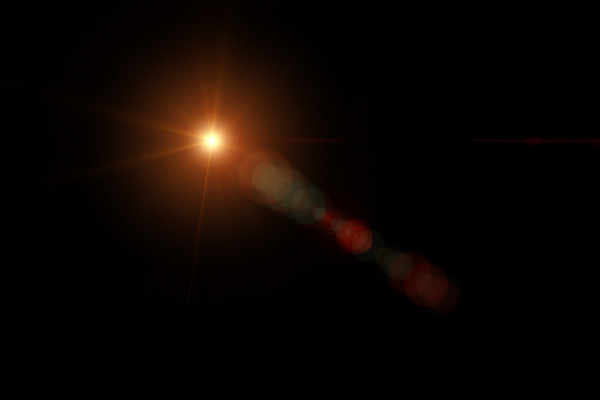
Malignant or Benign – Advice for Dealing with Eye Floaters
Eye floaters go unnoticed most of the time, but sometimes they're too large to ignore
This week, I’m going back over a story that was published in the Washington Post last year. Exploring the topic of eye floaters, black spots, and flashes, writer Jill Adams explained how Patrick Muffler (a retired geologist from Palo Alto) almost went blind.
To paraphrase the article, Mr. Muffler’s eye health emergency developed over the period of about five days. On a Thursday he noticed “funny v-shaped floaters” in his eye. When he woke up on Friday, the floaters were still there along with several more “black dots.”
Over the course of the weekend, he “developed a cloudy area in his visual field.” When he visited his eye doctor on Monday morning, he learned his retina was torn and detached.
Thankfully, Mr. Muffler made it to the eye doctor in time. He was then referred to a retina specialist who was able to perform an advanced procedure, which hopefully returned him back to normal.
Adams went on to say, “Anyone can get floaters (or sometimes light flashes) in their eyes. Floaters can take different shapes, including spots, threads, and clumps. Sometimes the cause is benign (bits of cell debris drifting about in the fluid that fills your eyes), and sometimes it’s an urgent and serious condition.”
If you experience a sudden increase in floaters and/or flashes, you should seek medical care immediately.
Dealing with Eye Floaters:
To put it simply, floaters are those small black or gray dots that move around your visual field. Most times they go unnoticed, but sometimes they’re too large to ignore (as in the case with Mr. Muffler). Floaters are more visible on sunny days as opposed to cloudy. And if you’ve never noticed them, look at a blank wall and move your eyes around a bit (they will reveal themselves).
The following complications may cause a person to be more susceptible to floaters:
- Myopia (or nearsightedness)
- Inflammation inside the eye
- Past eye injuries
- Previous cataract operations
- Certain types of past eye surgeries
The following symptoms are causes for concern:
- A noticeable increase in the number of floaters in your visual field
- A sharp increase in floater size
- Sudden flashes
- The appearance of a shadow in your peripheral vision
- Rapid decline in vision
Warning Signs & Treatment Options:
As new floaters pull loose from the retina, there’s always risk of tear or detachment. If a retinal tear or detachment occurs, treatment is required ASAP. Flashes of light are another sign of retinal complications. This is because the retina doesn’t have pain receptors. When the gel starts to move away from the retina, the brain perceives this sensation with a flash of light (as opposed to actual pain).
Another warning sign is a shadow (or curtain) coming into the visual field. This is almost certainly a sign of retinal tear and must be dealt with immediately to avoid detachment. Retinal tears can be sealed rather quickly using laser treatments. Retinal detachments are a more complicated matter. They typically require surgery, or the placement of a gas bubble into the eye to repair the detachment.
Keep in mind, time is of the essence when dealing with retinal issues. If you think something may be wrong (or different), it’s best to get checked out right away. Most of the time, complications can be handled with a simple procedure. Permanent vision loss can be avoided if the situation is caught in a timely manner.







